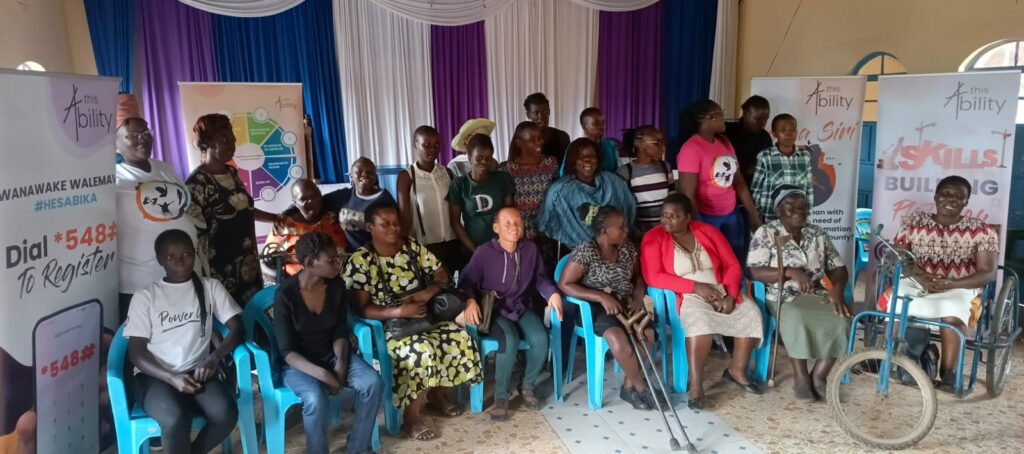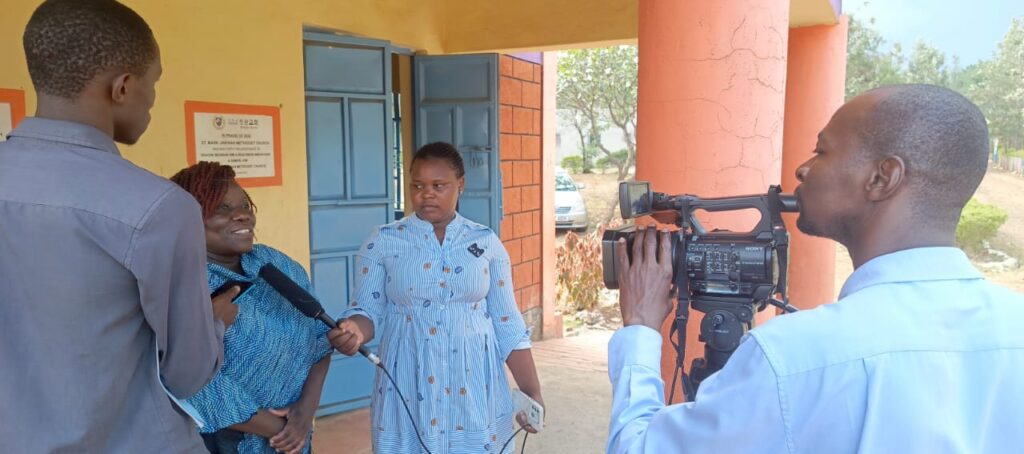At 22, and sexually active, Fatma (not her real name) thought it was time to make a choice on her sexual health.
“I took the bold step and visited a nearby hospital to make inquiries about family planning options viable for me,” said Fatma.
‘The health service provider gave me a strange gaze, followed by a long silence before pronouncing, ‘what do you need them for?’ My eyes rolled I guilt before I excused myself and left’-Fatma
At the facility located in Kisumu, Fatma made her way to the Reproductive Health section, where she got a not so friendly welcome.
“The health service provider gave me a strange gaze, followed by a long silence before pronouncing, ‘what do you need them for?’ My eyes rolled I guilt before I excused myself and left,” she said.
Born with physical disability
Fatma was born 23 years ago with a rare condition in which her femur and tibia bone were attached to each other.
“Doctors explained that my knee joint had not developed, hence my legs could not straighten,” she said. The only solution was to amputate both legs at the knee area, to enable her use assistive devices in movement.
The first born in a family of five now uses artificial legs, together with elbow crutches for her movement.
And since her disappointing experience with the Reproductive Healthcare providers, she has kept off seeking such services, saying the experience left her traumatised and feeling victimised.
When Lake Region Bulletin caught up with her, she was among 50 women with disabilities who had been undergoing a capacity building on Sexual Reproductive Health Rights (SRHR) convened by Mama Siri, a program run by This Ability Trust in 13 counties across the nation provides response services to women with disabilities.
“It took me time to share this experience with anyone. But after reflections assisted by the various disability networks I belong to, I shared it out,” she said.
What experts say
“Over time the health care system has proved inadequate to address the SRH needs of persons living with disabilities. From lack of translation facilities resulting in breach of right to privacy, of persons who are hard to hear, non-inclusive infrastructure that does not take into account the needs of PWDS,” says Wangari Ireri, Programme Manager, Trust for Indeginous Culture and Health (TICAH).
TICAH is a non-state actor which promotes holistic health and culture, in belief that culture shapes everything and that it is a marker of a healthy community.
Ms Ireri nites that this is further compounded by stereotypes that get healthcare providers and other members of the community assuming that PWDS are asexual, which has far reaching effects in delivery of services.
“It is such stereotypes including those that infantilize PWDS that manifest in the comments as aforementioned. Be that as it may, a combination of these factors amounts discrimination and goes against the rights to the highest attainable standard of health enshrined in our Kenyan Constitution under article 43,” she adds.
Kenya’s 2019 Population and Housing Census reported that 2.2 per cent (0.9 million people) of Kenyans live with some form of disability. The census results indicate that 1.9 per cent of men have a disability compared with 2.5 per cent of women.

Benter Mboya , head of Mama Siri program in Kisumu County notes that Fatma’s experience is one of the many cases reported by women with disability who are denied their sexual rights due to perception that they are asexual.
“We also pass through puberty, and it is the same as those without disability. There is no difference,” said Mboya who has physical disability.
“Disability is already a barrier, hence it would be quite unfortunate for women with disabilities to face more barriers in their attempt to enjoy their sexual rights,” said Mboya.
She added; “Being a woman with disability does not mean your womb is also disabled. How many women without disability are out there who cannot even give birth? And why do we feel that women with disability who are in their reproductive age, and sexually active is treated like a crime?”
Toll-free calls for women with disability
According to Ms Mboya, the Mama Siri program supported by This Ability Trust a toll-free number where the women seek assistance on various issues, especially abuse to their rights, and then get connected to various service providers to assist.
Through the program, Ms Mboya says denial of SRHR remains one of the key issues reported, with healthcare providers blamed for stifling this right.
In some instances, healthcare providers do not give women with disability opportunities to make choices on family planning, among other services.
“Most service providers decide for them (women with disability) on a number of sexual and reproductive health services, which should not be the case. The women should be given opportunity to decide for themselves,” said Mboya.
Her sentiments were echoed by Association of Physically Disabled in Kenya’s (APDK) Treazer Anyango who noted that apart from the discriminative actions by healthcare providers, there are systematic barriers in health facilities which worsen the situation.

The barriers, Ms Anyango said, include; compromised confidentiality due to lack of sign language interpreters, poor access to the facilities which are not disability-friendly, as well as lack of signages to help those with visual impairment.
“We feel that something can be done, especially when we are included in decision-making,” said Anyango who also has physical disability.
Easter Okech, the Director of Kenya Female Advisory Organization (KEFEADO) noted that there is to strengthen health-related disability policies so as to ensure that women wit various forms of disability enjoy dignified and quality sexual reproductive health services.
According to Ms Oketch, there is need for continuous retraining of healthcare providers, embracing of technology, and use of different spaces to champion for wholistic health rights for women with disabilities.
She noted that Kisumu has made a great step in promoting disability mainstreaming in its health facilities since the advent of devolution in 2013, however, she noted that there is need for improvement.
“There is need for increased engagement on looking at etiquette training among healthcare staffs, so that they are more adept at understanding that different disabilities require different needs, and how to engage at different levels,” said Ms Oketch.
Nationally, Kenya recognizes disability inclusion as a prerequisite to the achievement of the Sustainable Development Goals and its central pledge to leave no one behind.
In 2018, Kenya, United Kingdom, and International Disability Alliance co-hosted the Global
Disability Summit (GDS 2018), in which the participants pledged action towards tackling stigma and discrimination, data collection and disaggregation, inclusion in education, harnessing technology and innovation, among other interventions aimed at achieving disability mainstreaming.
Disability-friendly hospitals
However, County Executive Member for Health Dr Gregory Ganda noted that a lot of transformation is in progress on disability mainstreaming in the county’s health sector which he noted has seen some great improvement.
He noted that, even with the improvements, he could not deny that there could be bad apples in the system, adding that this is the reason why there are complaints mechanisms in hospitals to ensure such cases are addressed.
“If there is a complaint with clear identities of the health staff and the hospital involved, it would be easy to find the root cause and sort it out once and for all,” he said.
Ho said the county is currently implementing a strategy aimed at ensuring that at least one hospital in each of the 35 wards is disability friendly.
“This is just the first step, with the ultimate vision being having all hospitals having disability-friendly structures and services, just like we are doing with youths,” he said.
Reporting by Kevine Omollo and Betty Oyugi
